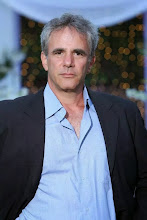Do I find the lives and loves of Edwards and Sanford remotely entertaining? No. On the other hand, it might serve Collins and her readership well to examine the ethics of her own beloved newspaper.
In a December 4, 2012 op-ed entitled "Iron Empires, Iron Fists, Iron Domes" (http://www.nytimes.com/2012/12/05/opinion/iron-empires-iron-fists-iron-domes.html), Thomas Friedman falsely alleged that Israel's planned E1 construction "would sever any possibility of a contiguous Palestinian state." This was followed by a December 20, 2012 editorial entitled "The Fading Mideast Peace Dream" (http://www.nytimes.com/2012/12/21/opinion/the-fading-mideast-peace-dream.html?partner=rssnyt&emc=rss&_r=1&), in which The Times went on record as stating:
"So far this week, Mr. Netanyahu’s hard-line government, defying the Western powers, has approved construction of more than 6,000 new housing units. The approvals follow an announcement late last month that Israel would continue planning for new development in the E1 area — a project northeast of Jerusalem that would split the West Bank and prevent the creation of a viable contiguous Palestinian state."
Unfortunately for both Friedman and the editorial board of The Times, E1 construction by Israel, if it ever happens, will not sever the West Bank. This is a fact.
As provided by Section 15 of "Ethical Journalism, A Handbook of Values and Practices for the News and Editorial Departments" (italics added) (http://www.nytco.com/pdf/NYT_Ethical_Journalism_0904.pdf):
"The Times treats is readers as fairly and openly as possible. In print and online, we tell our readers the complete, unvarnished truth as best we can learn it. It is our policy to correct our errors large and small, as soon as we become aware of them."
As further provided Section 16 of the "Handbook of Values and Practices for the News and Editorial Departments" of The Times:
"Simple courtesy suggests that we not alienate our readers by ignoring their letters and e-mails that warrant reply."
The New York Times did not bother to correct Friedman's op-ed piece or its editorial, notwithstanding my e-mails to Andrew Rosenthal, its editorial page editor, and Margaret Sullivan, its public editor. Moreover, both Rosenthal and Sullivan didn't bother to reply to me.
The ethics of politicians and journalists? Today, is there any difference?
Quite honestly, I am far more perturbed by the conduct of Friedman, Rosenthal, Sullivan and the anonymous editorial board of The Times than that of Edwards and Sanford.

No comments:
Post a Comment